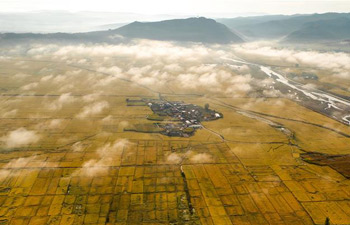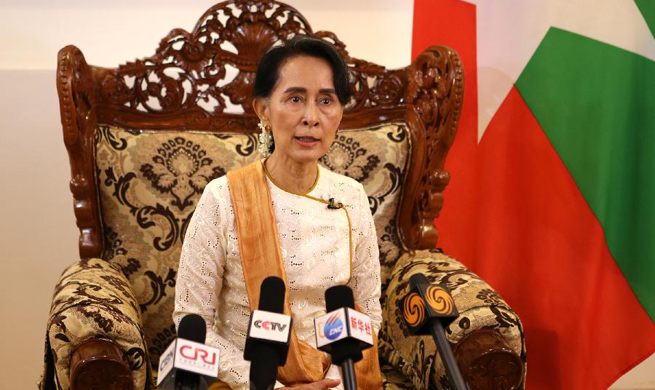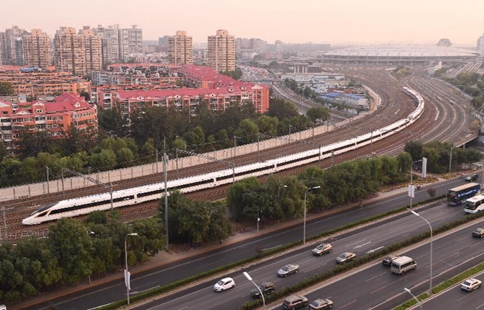BEIJING, Sept. 23 (Xinhua) -- China Earthquake Networks Center (CENC) Saturday detected a zero-depth earthquake measuring 3.4 on the Richter scale in the Democratic People's Republic of Korea (DPRK).
The epicenter was at 41.36 degrees north latitude and 129.06 degrees east latitude, according to the seismic service.
The epicenter was roughly the same with a similar shallow earthquake on Sept. 3, which turned out to be caused by a nuclear test by the DPRK.
However, South Korea's weather agency said the quake is presumed to have been a natural one, the country's Yonhap news agency reported.
"The quake is presumed to have occurred naturally," the report quoted an agency official as saying. "A sound wave, which is usually generated in the event of an artificial earthquake, was not detected."
The quake occurred a week after the DPRK conducted another medium-range ballistic missile drill under the personal guidance of its top leader Kim Jong Un.
The missile launch, which violated United Nations (UN) Security Council resolutions, came just days after the council imposed fresh sanctions on the DPRK over its nuclear test on Sept. 3.
Tensions between the DPRK and the United States escalated recently as Kim vowed to retaliate after U.S. President Donald Trump on Tuesday threatened to destroy Pyongyang in his speech at the UN General Assembly.
Kim said Trump "will face results beyond his expectation" in a statement released early Friday.
The DPRK also said it might test a hydrogen bomb in the Pacific Ocean.
At the General Debate of the 72nd Session of the UN General Assembly, speakers from China, Russia and South Korea have urged caution and diplomacy regarding the current situation on the Korean Peninsula.
Chinese Foreign Minister Wang Yi said Thursday that China is firmly committed to the denuclearization of the Korean Peninsula. "The planet does not need any new nuclear power," he said.
Wang urged the DPRK not to go its own way in a dangerous direction. Meanwhile, he urged the United States to honor its "Four Nos" commitment to the DPRK, and called for all parties concerned to play constructive roles in relieving tensions in the region.
The "Four Nos" commitment was stated by U.S. Secretary of State Rex Tillerson on Aug. 1, and refers to Washington's promise not to seek a regime change in Pyongyang, not to seek the collapse of the DPRK government, not to seek the acceleration of a reunified Korean Peninsula, and not to send its military north of the 38th Parallel that acts as the boundary between the DPRK and South Korea.
South Korean President Moon Jae-in called for caution regarding the DPRK.
"All of our endeavors are to prevent the outbreak of war and maintain peace," he said. "In that respect, the situation surrounding the North Korean (DPRK) nuclear issue needs to be managed stably so that tensions will not become overly intensified or accidental military clashes will not destroy peace."
He urged the DPRK to "immediately cease making reckless choices that could lead to its own isolation and downfall, and choose the path of dialogue."
Foreign Minister Sergei Lavrov of Russia, a participant in the stalled six-party talks on the Korean Peninsula crisis that also involve China, the DPRK, Japan, South Korea and the United States, also spoke up on the crisis.
"We are witnessing a very dangerous confrontation spiral around the DPRK," he said. "We resolutely condemn the nuclear missile adventures of Pyongyang in violation of Security Council resolutions, but military hysteria is not just an impasse, it is a disaster."















